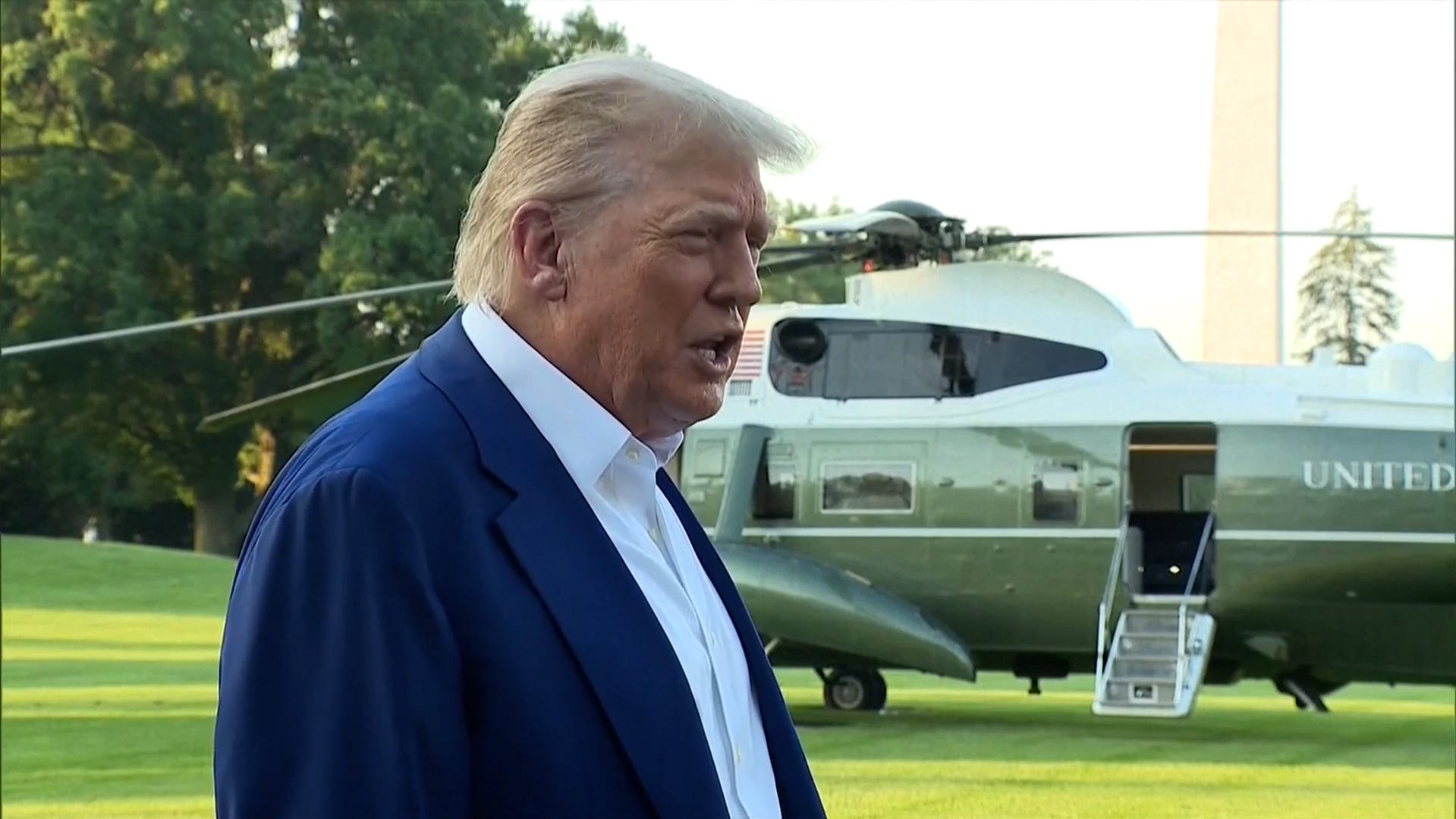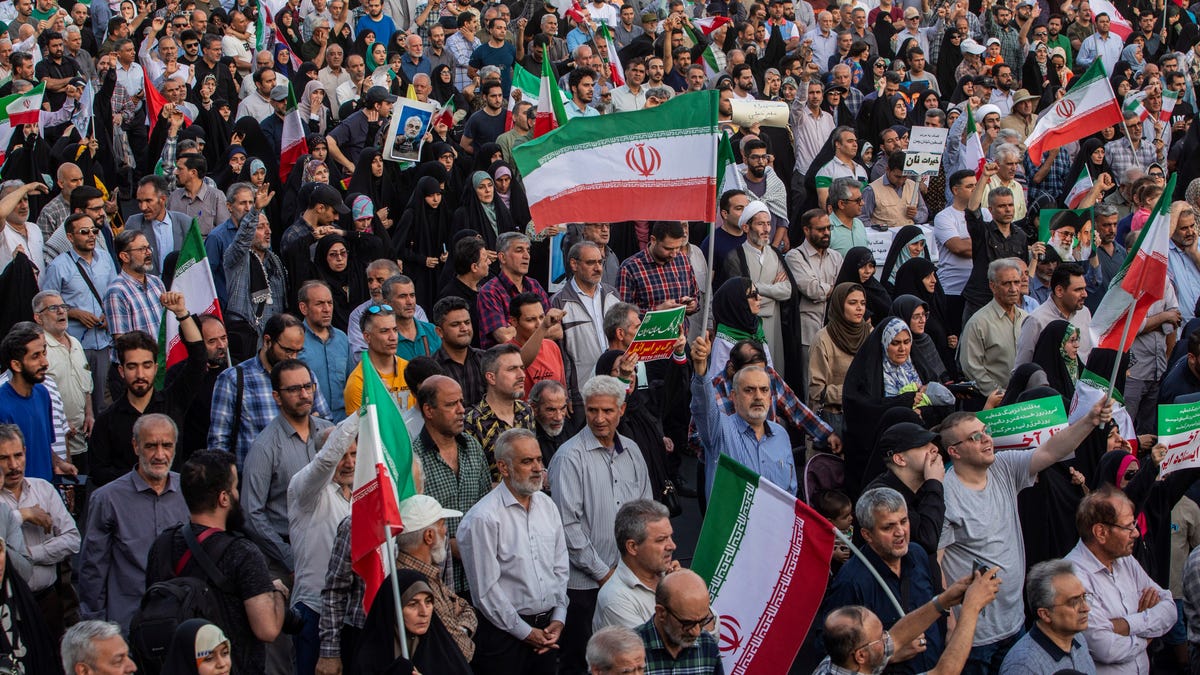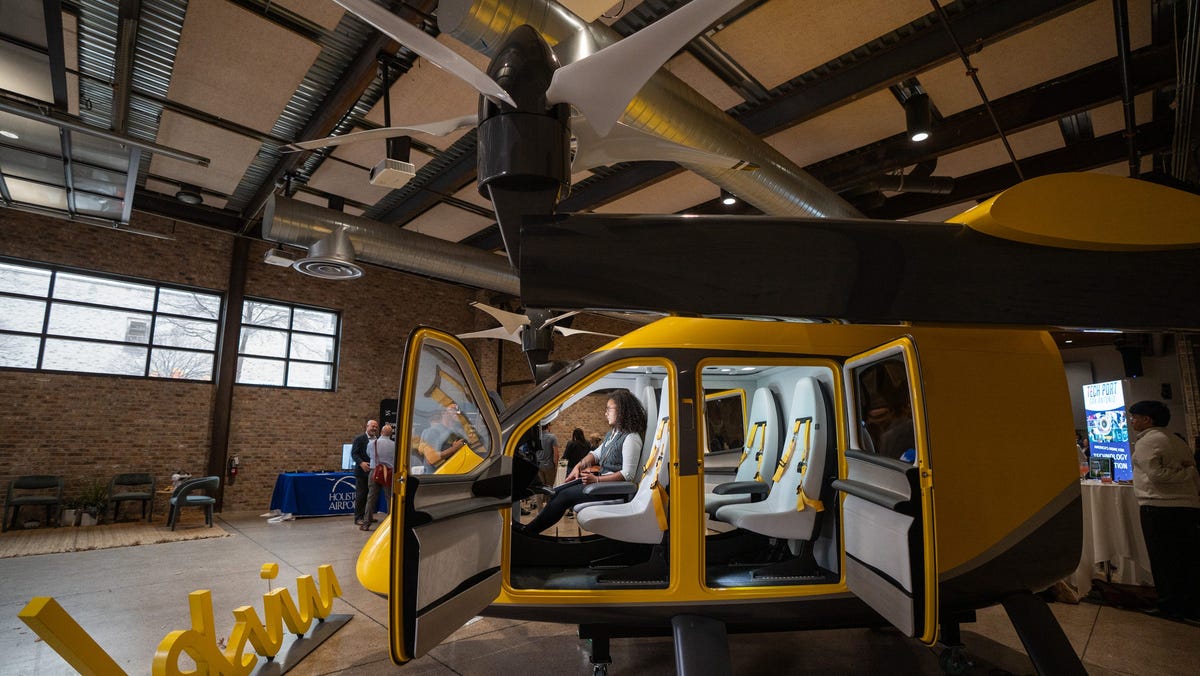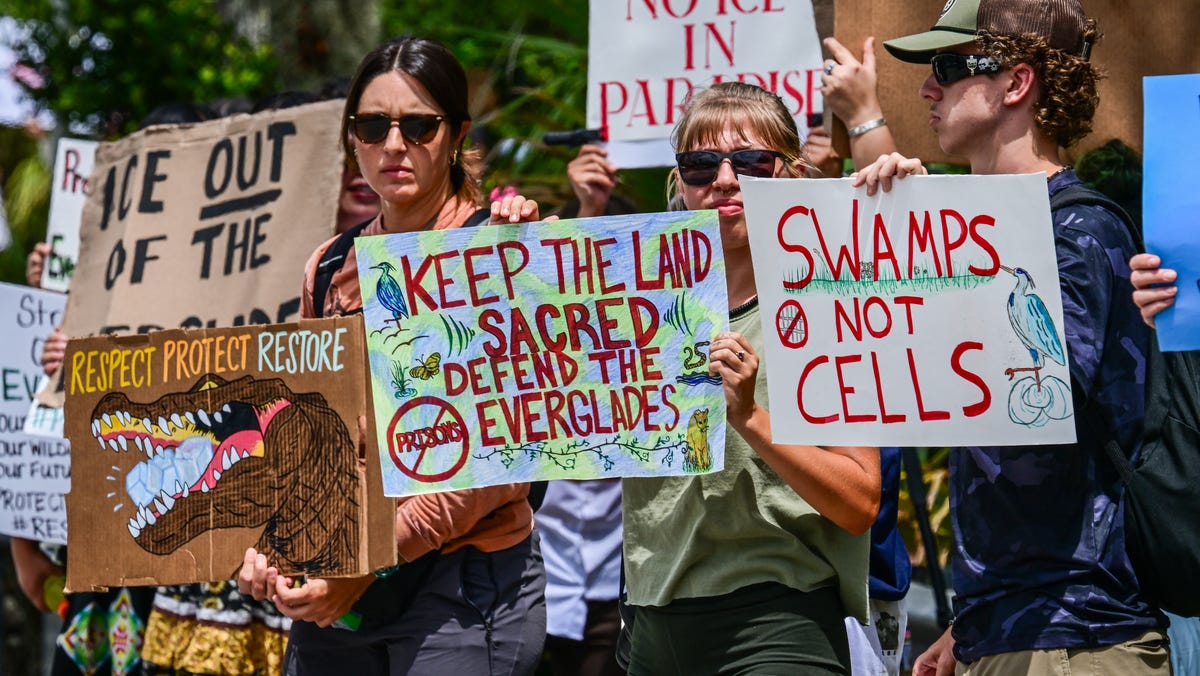Iranians have risen again and again. They’ve paid with their lives. But the Islamic Republic remains strategically protected and diplomatically tolerated by other countries.

Israel accuses Iran of violating ceasefire, Trump ‘not happy’
Just hours after President Donald Trump announced a ceasefire between Iran and Israel, Israel accused Iran of violating it.
“Why haven’t Iranians freed themselves?” is a cruel question with a cruel answer.
For 46 years, Iranians, like me and my family, have lived under the brutal grip of the Islamic Republic. We’ve been tortured, executed, silenced and disappeared.
And yet, the world too often asks: Why haven’t Iranians freed themselves? As if liberation is a matter of will. As if courage alone could dismantle a regime that’s not only authoritarian – but also propped up by global powers salivating over Iran’s oil and strategic leverage.
My family and I got out – but Iran was never far from our lives. In an Iranian household, politics isn’t distant – it’s part of everyday dinner conversation. On Monday June 23, when Evin Prison – known grimly as “Evin University” – was bombed amid the escalating conflict, I couldn’t stop thinking about the time my father was behind those bars.
Just over the weekend, the United States had entered the war, striking Iranian nuclear sites and then attempting to hold a fragile ceasefire.
We fled Iran when I was 6 years old and settled in Sweden, where I grew up. But the memories – and the impact – never left us.
More than 20 years ago, I moved to the United States, became a licensed psychotherapist and later founded Iran House, a nonprofit supporting survivors of torture and political repression. This work isn’t theoretical – it comes from lived experience. From witnessing what this regime does to people, to communities, to entire generations.
Iranians are caught in psychological vise
Because of my history, I know Iran is not just a dictatorship. It is a dictatorship backed by geopolitical interests. A regime that has made itself useful to the West, to the East and to every government that finds value in suppressing Iran’s freedom for the sake of their own economic or military gains.
The Islamic Republic is not just brutal – it is Machiavellian. It funds terror and negotiates peace, silences dissent and plays victim – weaponizing both its suffering and its influence. It is a master of moral disengagement, using every tool – whether virtuous or vile – to survive. So the Iranian people are caught in a psychological vise. They are blamed for not breaking free while every exit has been bolted shut.
From a trauma-informed lens, this is textbook coercive control – a term used to describe abusers who isolate their victims, cut off their resources, surveil their every move and convince the outside world that the problem is the victim, not the abuser.
Sound familiar?
Judith Herman, in her groundbreaking book “Trauma and Recovery,” explains that prolonged captivity – whether in an abusive relationship or under political tyranny – creates a state of learned helplessness, not because the victim lacks strength, but because every attempt at resistance has been punished with more violence.
This is not unique to Iran. We’ve seen it in North Korea, where generations live in total information control. In Belarus, where protesters vanish without a trace. In Syria, where democratic uprisings were drowned in blood. Even in Saudi Arabia, where the facade of reform masks the reality of state murder.
More than 10 Iranian uprisings, answered by more brutality
How do you rise when the world trades your freedom for oil? How do you scream when your throat has been crushed – and then you’re told you’re silent?
Iranians have risen again and again. Not once, not twice but more than 10 times. The first was in 1979, when women demonstrated against the mandatory hijab. The most recent was in 2022.
In between, there have been countless protests, executions and disappearances. People paid with their lives. And while they’ve fought on the front lines, the regime has continued to profit.
Iran is ranked third globally in oil reserves and second in natural gas. On paper, it should be a wealthy country – an energy giant with the potential to offer prosperity to its citizens.
And yet, millions of Iranians live below the poverty line. Basic goods are unaffordable.
The inflation rate hovers near 50%, crushing families – even those once considered middle class. And the economic despair is not just mismanagement – it’s deliberate. The Islamic Republic keeps its people poor, exhausted and distracted because desperation weakens resistance.
You can’t fight for freedom when you’re worrying about how to feed your child. You can’t rise up when the cost of bread doubles overnight.
According to Abraham Maslow’s hierarchy of needs, until people have food, safety and shelter, they can’t focus on freedom, dignity or self-actualization. That’s why asking, “Why haven’t Iranians freed themselves?” without acknowledging starvation-level inflation and state violence is not only unfair – it’s psychologically ignorant.
Countries are strategically protecting the regime
The exodus of Iran’s brightest minds isn’t accidental. It’s engineered. By fostering despair, criminalizing dissent and making daily life unbearable, the regime drives out its most capable citizens on purpose.
The brains of the country have either fled, are behind bars or have been silenced into submission. This benefits Western economies, which absorb Iranian doctors, artists, engineers and scientists – turning them into assets for the very countries that looked away when they bled. Meanwhile, inside Iran, the regime is left with fewer challengers and even greater control.
What made peaceful liberation possible for some nations was not just courage. It was timing, pressure and cracks in the system – when the world finally stopped protecting those regimes.
Iran’s regime remains unbroken – not because Iranians lack courage, but because it has been strategically protected, economically enriched and diplomatically tolerated. Its survival is a business model – for the East, the West and everyone in between – while the Iranian people have been isolated, exiled and condemned.
So again, the question is not “Why haven’t Iranians freed themselves?”
The real question is: Why has the world made sure they can’t?
Azadeh Afsahi is a licensed psychotherapist, PhD candidate in psychology and founder of Iran House, a nonprofit for survivors of torture and political repression.








